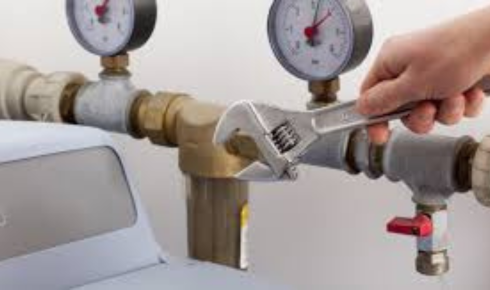
There’s something oddly comforting about turning on the tap and knowing the water that flows out is smooth, clean, and free of that harsh mineral bite. But in Austin — where the water is notoriously hard — that’s not always the case. Over time, minerals like calcium and magnesium build up in pipes, appliances, and on glassware, leaving behind the telltale chalky residue. For many, the humble water softener is the quiet hero keeping daily life running smoothly — until, of course, it stops doing its job.
When that happens, homeowners quickly realize just how much they’ve taken it for granted. You start noticing soap that won’t lather, dry skin after showers, cloudy dishes right out of the washer, and scale spots everywhere. That’s when it’s time to think seriously about water softener repair austin services before things get worse.
The Unseen Work of Your Water Softener
Most people don’t give much thought to their water softener — it’s one of those “set it and forget it” systems. But it quietly works day and night to remove hardness-causing minerals from your home’s water supply. Inside, tiny resin beads trap calcium and magnesium ions and replace them with sodium or potassium. This process, called ion exchange, keeps your plumbing free from buildup and your appliances operating efficiently.
But like any hardworking appliance, softeners eventually need attention. The resin can become saturated or fouled by iron, salt bridges can form in the brine tank, and mechanical parts can wear down. When that happens, water hardness slowly creeps back in, and you might not notice until your coffee maker clogs or your laundry feels stiff.
How to Spot Trouble Early
One of the best ways to extend the life of your softener is to catch issues before they turn serious. Watch for these subtle warning signs:
- Soap feels less effective. You may find yourself using more detergent than usual.
- White residue on faucets and dishes. The minerals are slipping through.
- A change in water taste. It might start to taste metallic or earthy.
- Low water pressure. Mineral buildup could be clogging the system.
- Frequent regenerations. The softener may be struggling to keep up.
If you notice even one of these issues, it’s time to schedule a check-up with a local specialist. Skilled technicians in water softeners austin can diagnose problems quickly and replace worn-out parts, clean resin tanks, or reset the system programming to get it back in shape.
DIY or Call a Pro?
It’s tempting to troubleshoot on your own — especially if you’re handy. Adding salt, cleaning the brine tank, or inspecting for visible salt bridges are easy tasks. But if you’ve done the basics and the water still feels “off,” that’s when professional expertise becomes essential.
Modern softeners are more complex than older models. Digital control valves, metered regeneration cycles, and precise resin balancing mean a small error can lead to bigger problems. A seasoned technician will test the water hardness, check the resin’s condition, clean out sediment, and ensure every setting is calibrated correctly.
Think of it like car maintenance — sure, you can change your wiper blades yourself, but when the transmission light comes on, you take it to a mechanic. The same logic applies here.
The Austin Water Challenge
Austin’s water isn’t just hard; it’s very hard. The city’s limestone-rich geography means that calcium carbonate levels run higher than most places in the U.S. That’s why so many homes rely on austin water softeners to keep everything — from showers to dishwashers — working properly.
Without one, you’re not just battling limescale; you’re also shortening the lifespan of water heaters, dishwashers, and washing machines. Studies show that homes without softeners can see a 20–30% decrease in appliance efficiency over time, translating to higher energy bills and repair costs.
So, if you live in Central Texas, maintaining your softener isn’t optional — it’s part of protecting your investment.
Finding the Right Service Partner
Austin’s home-service market is filled with water softener experts, but not all offer the same level of care or transparency. When choosing a company, look for:
- Experience with local water conditions. Austin’s hardness levels fluctuate, and technicians who know the area can fine-tune your system better.
- Honest assessments. Beware of upsells for expensive replacements when a simple part swap or resin refresh could fix the issue.
- Certified brands. Stick with trusted names like WaterTech, Culligan, or Kinetico for proven performance.
- Customer reviews. Check testimonials on Google or Nextdoor. Reliable providers will have a trail of satisfied clients who mention long-term service consistency.
A reputable company won’t just repair your system — they’ll educate you on keeping it in top condition.
Keeping It Running Smoothly
Once your water softener is repaired or replaced, it doesn’t take much to keep it humming along. Use high-quality salt, check levels monthly, and clean the brine tank once or twice a year. If your system has a pre-filter, replace it regularly to prevent sediment from entering the resin chamber.
Scheduling a professional inspection once a year is also smart — think of it like an annual check-up. It ensures efficiency and prevents sudden failures when you least expect them.
Closing Thoughts
Water softeners don’t just make your water feel nicer — they protect your entire plumbing ecosystem. For Austin homeowners, that’s not a luxury; it’s a necessity. Ignoring small warning signs can lead to expensive repairs or premature system replacement, but timely maintenance can easily extend the life of your softener by a decade or more.
Whether you’re dealing with hard water spots, dry skin, or appliances that aren’t performing like they used to, don’t wait until the problem gets bigger. A quick call for water softener repair austin can make all the difference — restoring the soft, smooth water your home deserves and keeping life in Austin flowing just the way it should.
